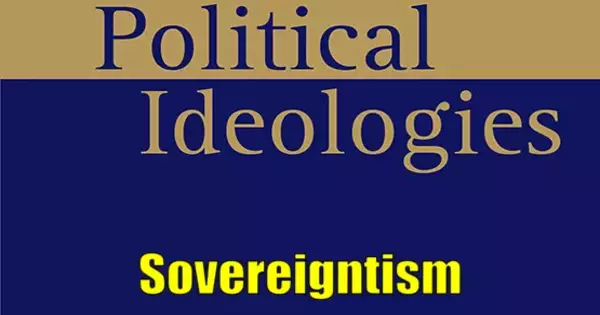Sovereignty is the concept of having control over one’s living conditions, whether at the level of the self, a social group, a region, a nation, or the entire globe. Sovereigntist an advocate of sovereignty alliance.
Typically used to describe the acquisition or preservation of a nation’s or region’s political independence, a sovereigntist seeks to “reclaim control” from perceived powerful forces, whether internal subversive minority groups (ethnic, sexual, or gender) or external global governance institutions, federalism, and supranational unions. It generally leans toward isolationism and is associated with certain independence movements, but it has also been used to justify violating other nations’ independence.
Classification
Sovereignty has a cultural as well as a political component, and it can manifest as hostility toward outsiders with different values or from different countries or regions of origin. Sovereigntist movements are linked to populism because they typically claim legitimacy for carrying out the sovereign will of the people. While leftist sovereigntists see their national border as a defensive line against the corrosive effects of neoliberal economics, right wing sovereigntists see it as a filter protecting the sovereign people from unwanted new members.
Though sovereigntist movements differ greatly in ideology and historical context, those of the twenty-first century can be divided into three categories: conservative sovereigntism, archeo-sovereigntism, and neo-sovereigntism. Conservative sovereignism embraces the national Westphalian model of sovereignty, seeking to preserve the interstate order through norms that promote global economic order while halting further progress toward political integration.
Some vestiges of colonialism remain, with old powers retaining what they perceive to be historical special responsibilities to intervene in former possessions, such as Russia’s invasion of Ukraine. Neo-sovereignty is concerned with issues of autonomy among rising powers, particularly against more privileged nations with concentrated power in transnational entities such as the UN Security Council or the G7. It seeks to strengthen norms and agreements that protect each state’s independence, ensure their equality, and prevent more powerful states from attempting to influence the behavior of other nations.
The most radical is archeo-sovereigntism, which rejects globalization forces and restraints on states imposed by transnational bodies, norms, and agreements, calling for a return to a pre-World War II order in which states were less subject to such interference. In Europe, examples include the Front National in France, the Lega Nord in Italy, the Dansk Folk Party in Denmark, and UKIP in the United Kingdom.
















